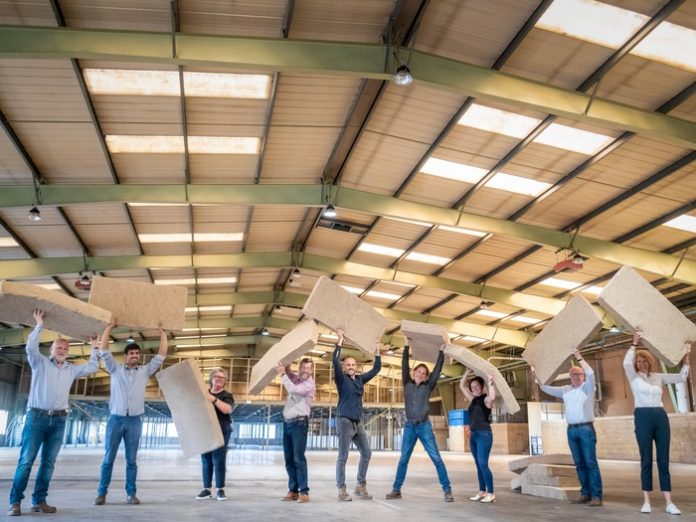Scotland’s first factory producing carbon negative insulation for homes and commercial properties is to be established following a £3 million investment from the Scottish National Investment Bank.
Sustainable construction materials business IndiNature plans to open its new Borders manufacturing hub in summer 2022 and grow its workforce to 30.
IndiNature has developed a natural fibre insulation system called IndiBreathe using hemp grown in the UK, that can be fitted both in new and retrofit building projects.
The Bank’s investment will enable the business to scale up production at its new facility in Jedburgh and target new domestic and international markets. It has also unlocked grant funding provided by Zero Waste Scotland (£803k) and South of Scotland Enterprise (£250k).
Eilidh Mactaggart, CEO of the Scottish National Investment Bank, said: “The Bank’s investment in IndiNature supports an innovative Scottish company to build its first factory and help to accelerate the transition of the construction industry to net zero.
“Decarbonisation of the industry is a critical element of Scotland’s journey to net zero.
“IndiNature’s innovative natural fibre insulation supports this journey in two clear ways, increasing energy efficiency of buildings and storing carbon within the insulating material itself.
“It was clear through working with IndiNature its products fundamentally supported the delivery of the Bank’s missions. The Bank’s patient capital can help the company to achieve its growth aspirations, with positive economic and environmental benefits for Scotland as a result.”
The company’s core product IndiTherm results in a net carbon capture because it absorbs more carbon than the emissions produced to manufacture it, as well as increasing the energy efficiency of the building where it is installed.
At capacity, IndiNature’s new site will be able to capture a net 10,500 tonnes CO2/yr which means that by 2050 the factory will have the equivalent impact on the climate crisis as planting more than 5 million trees. The firm claims its products can reduce the average new UK home’s construction carbon footprint by 4.4 tonnes CO2.
Scott Simpson, Co-founder & CEO of IndiNature, said: “We couldn’t be happier having the Scottish National Investment Bank back us – it’s a strong mission fit.
“It feels great that we can move forward to create local Borders jobs and make insulation on scale in Scotland – insulation that’s good for people’s health and the planet.
“The demand for local, natural alternatives in construction is increasing. At IndiNature we love using crops from UK farmers – it’s so critical the world moves faster toward what’s known as the circular bio-economy by using plants in products, to reduce waste and naturally capture carbon.
“The fossil fuel era has to end – we can replace it with traditional natural materials and new cleantech innovations.
“Our news coincides with the latest IPCC (International Panel on Climate Change) report this week which calls for urgent action. IndiNature aims to be a Scottish showcase of positive action.
Professor Russel Griggs OBE, Chair of South of Scotland Enterprise, added: “We have been working closely with IndiNature for a considerable time, from providing funding support to helping to develop their plans and assisting with finding a suitable location.
“IndiNature is exactly the type of inward investment we want to join us in the South of Scotland – an innovative company which is leading the way in terms of the just transition journey to NetZero.
“I am delighted to see the Scottish National Investment Bank working with and investing in this type of business in the South of Scotland and the creation of new jobs will be hugely welcomed amongst the local community.”
Iain Gulland, Chief Executive of Zero Waste Scotland, said: “IndiNature is a truly circular business, and its eco-friendly insulation signals a greener future for the construction industry. Insulation is typically made using artificial materials, so a lot of it ends up as waste at the end of its useful life.
“IndiNature’s natural fibre insulation products put less strain on the planet’s resources, and they absorb more carbon than the emissions produced to manufacture them. Plus, the natural insulation can be recycled and given a second life instead of ending up in landfill.
“A team of experts at Zero Waste Scotland initially worked with IndiNature to help build their circular business model. In the year of COP26, Scottish businesses have a brilliant opportunity to attract new customers, reduce their carbon footprint and cut waste by adopting circular principles.
“We’d encourage more businesses to explore circular opportunities and our experts are always on hand to help.”



















